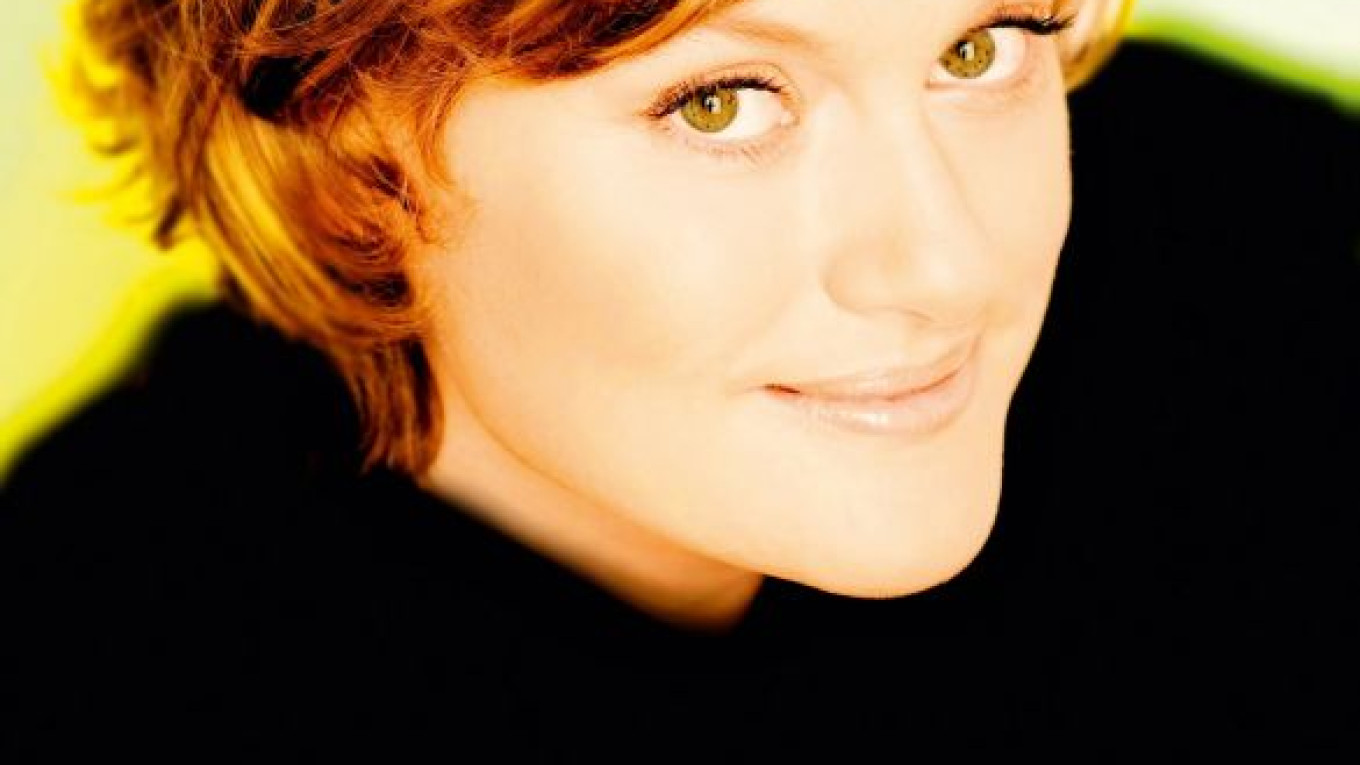For the third September in a row, the Moscow concert season has gotten under way with the Large Festival of the Russian National Orchestra, which began Thursday and runs until Sept. 18.
Like its predecessors, this year’s festival is an eclectic mixture, combining concerts by Moscow’s finest symphony orchestra with vocal recitals, jazz and a touch of ballet.
The festival’s opening Thursday brought the RNO to the stage of the newly renovated Great Hall of the Moscow Conservatory, in performances under the baton of its founder and artistic director, Mikhail Pletnev, of Pyotr Tchaikovsky’s “Manfred” Symphony and, with American Sarah Chang as soloist, the Violin Concerto of Jan Sibelius.
Tonight, and for the remainder of its run, the festival moves to Tchaikovsky Hall. Featured on tonight’s program, together with the RNO, is one of the world’s most highly regarded mezzo sopranos, Bulgarian-born Veselina Kazarova, a specialist in music of the baroque, of Wolfgang Amadeus Mozart and of the Italian composers of the bel canto era. Making her first appearance in Moscow, Kazarova is due to sing seven arias from operas by Mozart and Gioacchino Rossini.
A second operatic recital takes place on Sept. 16, with a pair of young and much-admired singers from America, coloratura soprano Sarah Coburn and tenor Lawrence Brownlee, who join forces in a program of arias and duets from operas by Rossini and his bel canto compatriots Vincenzo Bellini and Gaetano Donizetti.
On Sunday, the RNO, with Thomas Sanderling on the podium, presents a concert to mark the 10th anniversary of the 9/11 terrorist attack in New York. On the program are Dmitry Shostakovich’s Symphony No. 13, bearing the title “Babi Yar,” and Leonard Bernstein’s Symphony No. 3, titled “Kaddish.”
The Shostakovich symphony is a setting for baritone and chorus of five poems by Yevgeny Yevtushenko and takes its title from the first of these, which concerns the German massacre, exactly 70 years ago this month, of some 33,000 Jews in the Babi Yar ravine on the outskirts of Kiev. Written and first performed in 1962, the symphony drew considerable opposition from the ruling Soviet establishment and was banned after just a few performances. Conductor Kirill Kondrashin, who led its premiere, quoted a Communist Party district boss as saying, “This is outrageous, we let Shostakovich join the Party, and he goes and presents us with a symphony about Jews.” Singing the baritone part on Sunday will be its leading present-day exponent, Sergei Leiferkus.
Bernstein’s symphony, dating from just a year later, sets a Jewish prayer of mourning and includes a spoken narration. The narration was originally the work of Bernstein himself. But dissatisfied with the result, the composer asked his friend Samuel Pisar, a Paris attorney and survivor of the Auschwitz concentration camp, to create new words. Pisar eventually did so, a decade after Bernstein’s death and in the wake of 9/11, calling his narration a “Quarrel with God.”
On Sunday, Pisar himself will act as narrator.
Tomorrow evening brings a program titled “Some Encounters with Mr. Mozart,” which combines readings by the popular author and television personality Eduard Radzinsky from a play of his about Mozart, written 20 years ago but heretofore performed only in Italy, with excerpts from the composer’s music, performed by the RNO under the baton of Bolshoi Theater conductor Mikhail Granovsky, the Yurlov Chorus, soprano Angelina Petnichenko and pianist Leonid Ogrinchuk.
Jazz comes to the festival on Tuesday with an appearance by the world-renowned trio of Kazakh-born American pianist Eldar Djangirov, featuring works of George Gershwin and Cole Porter, as well as music by Djangirov himself. Joining the trio will be soloists of the RNO, plus the full orchestra led by Mikhail Tatarnikov, one of the fastest-rising stars among the younger generation of Russian conductors.? ?
Ballet takes the stage on Wednesday, in the form of a dance setting of Tchaikovsky’s piano suite “The Seasons,” choreographed by Vera Arbuzova, a soloist of St. Petersburg’s Mikhailovsky Theater and performed by longtime Mariinsky Theater ballerina Yulia Makhalina, together with two young male soloists from the Mikhailovsky. Also on the program is a suite from Sergei Prokofiev’s ballet “Cinderella” arranged for two pianos by Mikhail Pletnev. At the pianos will be a pair of distinguished Russian artists, Maxim Mogilevsky (who also plays the Tchaikovsky suite) and Valery Kuleshov, both currently teaching at universities in the United States.
The festival comes to a mighty end on Sept. 18 with a performance of Giuseppe Verdi’s Requiem under the baton of Pletnev. Joining the RNO will be a huge assembly of choristers, combining three Moscow choral ensembles, and what promises to be a superb quartet of vocal soloists, most notably Bulgarian soprano Alexandrina Pendatchanska, a star of opera stages throughout Europe and North America, and the prominent Italian bass Roberto Scandinuzzi.
A Message from The Moscow Times:
Dear readers,
We are facing unprecedented challenges. Russia's Prosecutor General's Office has designated The Moscow Times as an "undesirable" organization, criminalizing our work and putting our staff at risk of prosecution. This follows our earlier unjust labeling as a "foreign agent."
These actions are direct attempts to silence independent journalism in Russia. The authorities claim our work "discredits the decisions of the Russian leadership." We see things differently: we strive to provide accurate, unbiased reporting on Russia.
We, the journalists of The Moscow Times, refuse to be silenced. But to continue our work, we need your help.
Your support, no matter how small, makes a world of difference. If you can, please support us monthly starting from just $2. It's quick to set up, and every contribution makes a significant impact.
By supporting The Moscow Times, you're defending open, independent journalism in the face of repression. Thank you for standing with us.
Remind me later.


